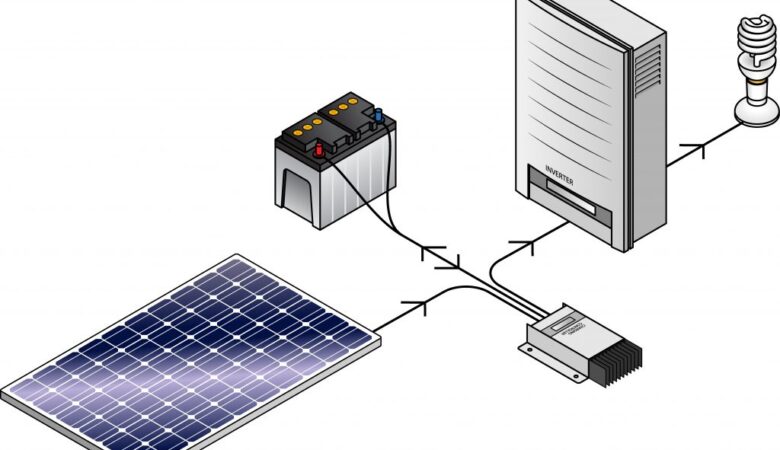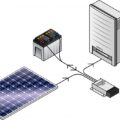Exploring the concept of solar batteries
Many people often wonder if they can use a solar battery on their car. The answer is a resounding yes! With the advancement of technology, solar batteries have become more efficient and compact, making them ideal for powering various applications, including vehicles. By installing a solar battery on your car, you can harness the power of the sun to keep your vehicle running efficiently while reducing your carbon footprint.
In addition to powering cars, solar batteries are also revolutionizing energy storage for homes and businesses. These innovative devices allow users to store excess energy generated by solar panels during the day for use at night or when sunlight is limited. This not only reduces reliance on traditional grid electricity but also provides a sustainable and cost-effective solution for meeting energy needs. As the demand for renewable energy sources continues to grow, exploring the potential of solar batteries opens up new possibilities for a cleaner and more sustainable future.

How Solar Batteries Work: Understanding the technology
Solar batteries in cars work by harnessing energy from the sun using solar panels installed on the vehicle. These panels convert sunlight into electricity, which is then stored in a battery for later use. The stored solar energy can power various electrical components of the car, such as lights, audio systems, and even some climate control functions. In some advanced models, this stored solar energy can also supplement the main battery and reduce the load on the alternator, leading to improved fuel efficiency.
One common question is whether it’s possible to use a solar battery to power an entire car. While current technology doesn’t typically allow for complete reliance on solar power for driving vehicles, advancements are being made towards integrating larger solar panels onto cars to provide more substantial charging capabilities. Currently, most solar-powered vehicles primarily rely on traditional electric or hybrid systems with supplemental solar charging rather than running solely on solar power. However, as technology continues to advance, we may see greater integration of fully functional solar batteries in cars in the near future.
Solar Batteries for Car Use: Feasibility and limitations

When considering the feasibility of using solar batteries for cars, it’s important to address both the potential benefits and limitations. While advancements in solar technology have made it more feasible to power certain car functions with solar energy, such as interior ventilation or auxiliary power outlets, fully powering a vehicle solely through solar batteries still presents significant challenges. The surface area of a car roof is limited and may not generate enough energy to consistently power a vehicle, especially during low-light or inclement weather conditions.
Additionally, the weight and cost of integrating sufficient solar panels and storage systems into a vehicle can limit its practicality. Furthermore, current solar technology has limitations in terms of energy conversion efficiency, meaning that even with ample rooftop space covered with panels, the amount of electricity generated may not be adequate for continuous car operation. It’s clear that while there are exciting developments in this field, practical considerations and technological constraints currently restrict the widespread use of solar batteries as a primary power source for cars.
Benefits of Using a Solar Battery on a Car: Environmental and practical advantages
Using a solar battery on a car offers an array of environmental and practical advantages that make it a compelling choice for modern drivers. The most immediate benefit is the substantial reduction in carbon emissions, as solar power generates clean, renewable energy instead of relying solely on traditional fossil fuels. This not only serves to reduce the carbon footprint of individual vehicles but also contributes to overall sustainability efforts in the transportation sector. Additionally, integrating a solar battery into a car promotes energy independence by harnessing the sun’s power to charge the vehicle’s battery, reducing reliance on grid electricity and ultimately cutting down on fuel costs.
In practical terms, equipping a car with a solar battery can enhance its efficiency and reliability. By continually replenishing the battery with solar energy, drivers can extend their range and decrease the frequency of charging stops or refueling. Moreover, this technology provides an added layer of resilience—particularly useful in emergencies or remote areas—by ensuring that even if conventional charging options are unavailable, the vehicle remains operable through solar power. Ultimately, embracing this innovation represents a proactive step towards greener and more self-sufficient motoring solutions.
Challenges of Implementing Solar Batteries in Cars: Cost and efficiency concerns
The implementation of solar batteries in cars presents a myriad of challenges, with cost and efficiency being major concerns. While the idea of harnessing solar power to charge electric vehicle batteries sounds promising, the current high cost of solar technology poses a significant barrier to widespread adoption. Integrating efficient solar panels into car designs adds to the overall expense of manufacturing, making it difficult for automakers to offer affordable options to consumers.
In addition, the efficiency of solar panels on vehicles remains a critical issue. The limited surface area available on cars makes it challenging to install enough solar cells capable of generating significant power. Moreover, factors such as weather conditions and driving patterns directly impact the amount of energy that can be harvested from these panels. These limitations raise questions about whether current solar technology is truly practical for addressing the energy needs of electric vehicles in real-world scenarios.

Ultimately, while the concept of using solar batteries in cars holds promise for sustainable transportation, overcoming barriers related to cost and efficiency will require innovative solutions and advancements in technology before it becomes a viable option for mainstream automotive use.
Case Studies of Solar-Powered Vehicles: Real-world examples and outcomes
Solar-powered vehicles have become a topic of increasing interest in recent years due to the advancements in solar technology. One notable case study is the Dutch solar car Stella, which successfully completed a 3,000 km journey across Australia using only solar power. This achievement highlights the potential for solar-powered vehicles to revolutionize transportation by offering sustainable and efficient alternatives to traditional fuel-powered cars.
Another compelling example is the development of solar-assisted electric buses in various cities around the world. These buses utilize a combination of solar panels and rechargeable batteries to reduce their reliance on traditional energy sources, resulting in lower operating costs and reduced environmental impact. These case studies demonstrate that employing solar technology in vehicles can lead to tangible benefits, such as decreased emissions and enhanced energy efficiency. As technology continues to evolve, it’s becoming increasingly feasible for everyday drivers to consider integrating solar batteries into their own vehicles as a means of reducing their carbon footprint while also achieving cost savings.
The future of solar batteries in automotive industry

In conclusion, the future of solar batteries in the automotive industry looks promising, with rapid advancements in technology and growing environmental consciousness driving the shift towards sustainable energy sources. While current limitations exist in terms of efficiency and cost, ongoing research and development efforts are focused on overcoming these obstacles. The potential for integrating solar batteries into cars is gaining traction as manufacturers recognize the benefits of reducing reliance on traditional fuel sources and minimizing emissions.
Looking ahead, innovations such as lightweight and flexible solar panels offer opportunities to seamlessly integrate solar battery technology into vehicle designs. As electric vehicles continue to gain popularity, the integration of solar batteries could enhance their range and reduce dependency on charging infrastructure. Additionally, advancements in energy storage capacity will further bolster the feasibility of using solar batteries in cars, potentially paving the way for a future where renewable energy powers our daily transportation needs. As consumers increasingly seek sustainable solutions, it’s conceivable that embracing solar-powered vehicles may become a viable option for conscientious drivers seeking to minimize their environmental impact while enjoying the freedom of mobility.











